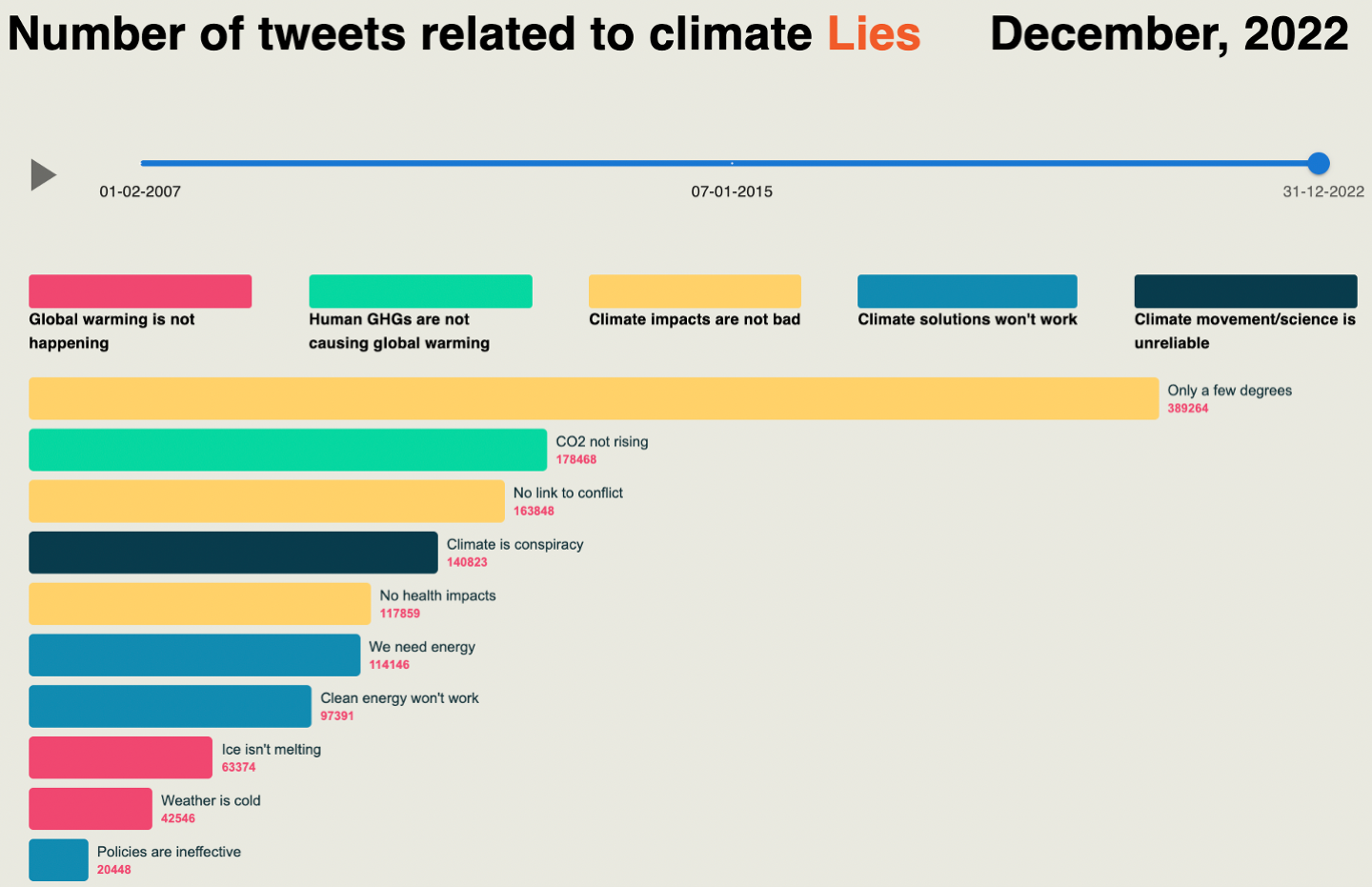Scientists have known for decades that the continued use of fossil fuels, like gas, oil, and coal, is the primary reason for the climate crisis. Global temperatures are soaring due to excessive greenhouse gas emissions, but with urgent, systemic actions, there is still time to make a difference. But how do we ensure people get accurate and scientific information about climate change that can help save the planet? It starts with taking on climate lies.
In a yearlong project, called Data and Misinformation in an Era of Sustainability and Climate Change Crises, researchers at Boston University worked to do just that. They recently shared their findings during a full day research symposium held at the Center for Computing & Data Sciences (CDS). The event, aptly titled Taking on Climate Lies, took a deep dive into the project's three main research areas: how climate misinformation permeates social media platforms, in particular Twitter and Reddit; misleading advertising in mainstream media; and language used to sow doubt about the urgency of climate change.
"Misinformation is pervasive, it's at a very unique moment in our culture, and a post-truth society cannot survive," said Benjamin Sovacool, director of BU's Institute for Global Sustainability (IGS). "This work couldn't be more timely."
From the 17th floor of CDS, where the symposium took place, Boston's skyline was on full display-a place threatened by increasing sea level rise and extreme heat. The Charles River glistened below, and the city's famous red and white Citgo sign was visible in the distance through the glass windows behind the audience, as researchers presented findings from the project.
"We need a championing of stories," said Jonathan Schrag, Massachusetts' deputy climate chief and director of investment for decarbonization and resilience, who delivered the keynote address. "We need accurate information that clearly articulates where to invest."
He also advocated for making that information easily accessible for consumers, not just to fight climate lies, but also so they can take full advantage of tax credits passed with the Inflation Reduction Act and other incentives that make decarbonizing and electrifying homes and cars more affordable.
Climate Misinformation on Twitter
One major theme throughout the symposium was the fossil fuel industry's role in shaping the climate conversation. Irena Vodenska, a BU Metropolitan College professor of finance and IGS core faculty member, talked about fossil fuel companies starting to spread false climate information decades ago. Like when Exxon's own scientists reportedly found that burning fossil fuels would cause catastrophic climate change, disrupt ecosystems, and lead to planetary warming and changes in weather patterns, but the company instead promoted information saying the opposite.
Vodenska and a cross-disciplinary team of BU researchers shared their efforts to examine climate mis- and disinformation on Twitter and Reddit, a tactic that became part of the fossil fuel industry's communication strategy. They analyzed over 22,000 tweets that spread climate disinformation, and identified over 60 Twitter accounts funded by ExxonMobil-the world's largest publicly traded oil and gas company-that promote false and misleading information about the climate crisis.

By further analyzing the tweets, they surfaced two major recurring themes from the ExxonMobil-linked accounts: "climate change is not threatening," and "Biden's energy plans hurt economic growth." On Reddit, the researchers analyzed content on three subreddit forums, /r/climate, /r/climatechange, and /r/climateskeptics, posted from 2008 to present day. Misinformation was present in all three groups (especially /r/climateskeptics), but there were more instances when skepticism about climate change was refuted or challenged in the science-focused groups, /r/climate and/r/climatechange.
"Climate change should not be a political issue," said Vodenska. "It's an issue that impacts the place we all live, whether you're Democrat or Republican."
The team is aiming to use their language processing techniques to study misinformation across other subject areas, and hope that their tools can eventually help make fact-checking and flagging information on social media platforms more accurate.
"A big takeaway for me is that there's a small, but loud number of voices that are putting out climate misinformation," says Rebecca Pearl-Martinez, executive director of IGS. "They're networked and working together, so how do we disentangle that, and how do we promote science as a way forward?"
Separating Truth from Lies
Alongside social media, one of the most effective ways climate lies spread is through native advertising-a type of paid content that looks deceivingly like real news articles. Michelle Amazeen, a BU College of Communication associate professor of mass communication, advertising, and public relations, and Chris Wells, a COM associate professor of emerging media studies and core faculty in IGS, identified the news publications that run the most native advertisements and the companies that pay for them.






